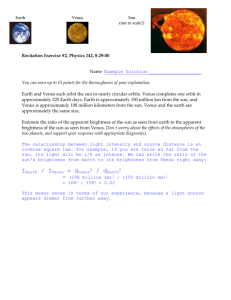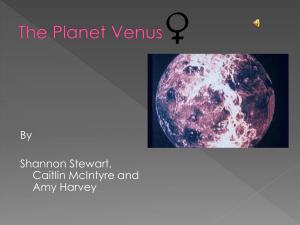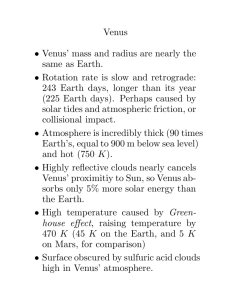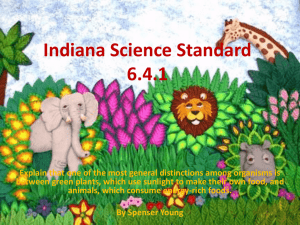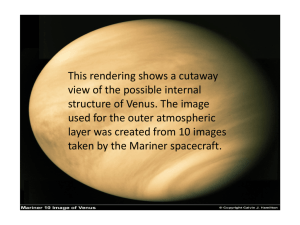Venus
advertisement
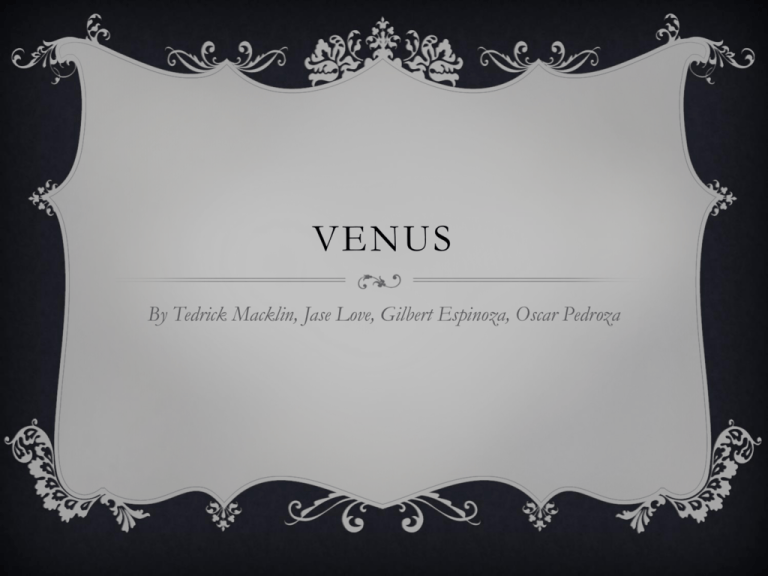
VENUS By Tedrick Macklin, Jase Love, Gilbert Espinoza, Oscar Pedroza PLANET PROFILE Mass: 4,867,320,000,000,000 billion kg (0.815 x Earth) Equatorial Diameter: 12,104 km Polar Diameter: 12,104 km Equatorial Circumference: 38,025 km Known Moons: none Notable Moons: none Orbit Distance: 108,209,475 km (0.73 AU) Orbit Period: 224 Earth days Surface Temperature: 462 °C First Record: 17th century BC Recorded By: Babylonian astronomers VENUS RELATIVE SIZE Venus is relatively the same size as Earth. There is a 638 km diameter difference between the two planets. Venus contains roughly 81.5% of the Earth’s mass. MYTHOLOGY BASED UPON VENUS In mythology, Aphrodite was considered to be the goddess of love. In mythology, Venus represents the feminine aspect in us all. She is considered to be the brightest object in the sky after the sun and the moon. This is also true in general. VIDEO LINK www.youtube.com/watch?v=moNf1RKeirw REVOLUTION It takes 225 Earth days for Venus to complete a revolution around the sun. The lack of tilt that Venus has, causes the greenhouse effect making it exceptionally hot. It also is hot due to the immense amount of carbon dioxide. Kepler’s fist law staves that the path that Venus takes around the sun is an ellipses. ATMOSPHERIC PRESSURE The atmospheric pressure of Venus is estimated to be about 92 times greater than Earth’s. The pressure would be equal to the feeling of being deep beneath the sea on earth. PHASES OF VENUS Similar to our moon, Venus has phases when viewed on a telescope. The orbit of Venus is between the Earth and Sun. THE SURFACE OF VENUS Venus is covered by clouds of water vapor and sulfuric acid and the surface cannot be seen with normal astronomy based telescope. LINK https://www.dailymotion.com/video/x2jzrrf_venus-solar-systemand-universe-planets-facts-animation-educational-videos-forkids_school


